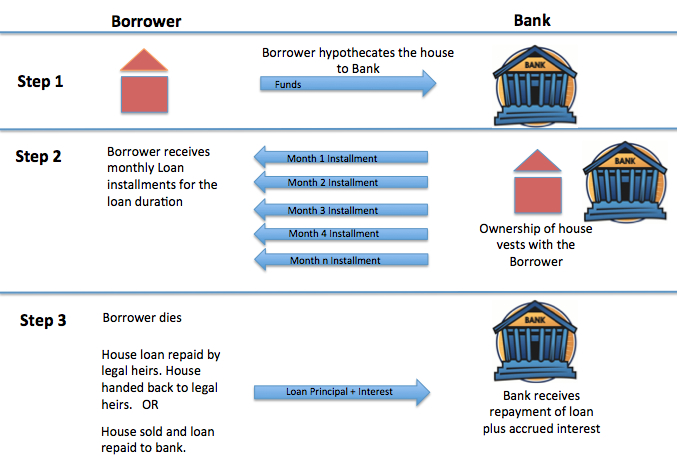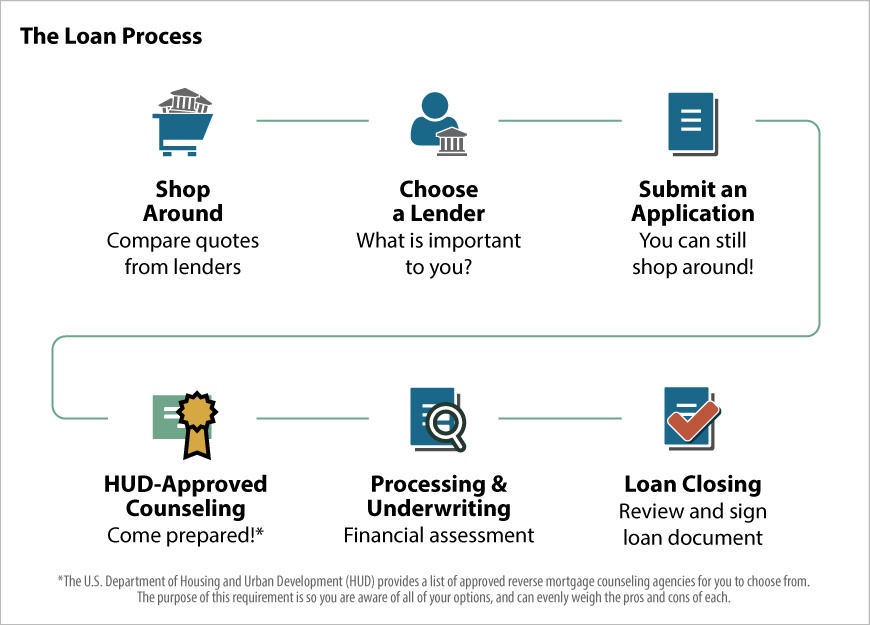Steps to Successfully Purchase Reverse Mortgage for Your Property
Steps to Successfully Purchase Reverse Mortgage for Your Property
Blog Article
Unlock Financial Liberty: Your Overview to Acquiring a Reverse Mortgage
Comprehending the intricacies of reverse home mortgages is necessary for homeowners aged 62 and older looking for monetary flexibility. As you consider this choice, it is essential to grasp not just just how it works but additionally the effects it may have on your economic future.
What Is a Reverse Home Mortgage?

The fundamental charm of a reverse home mortgage lies in its potential to enhance monetary adaptability throughout retirement. Homeowners can use the funds for various objectives, consisting of medical costs, home enhancements, or daily living expenses, thus providing a safety internet throughout an essential stage of life.
It is necessary to recognize that while a reverse home loan permits boosted capital, it likewise lowers the equity in the home with time. As rate of interest builds up on the impressive lending equilibrium, it is important for possible borrowers to carefully consider their long-term monetary plans. Consulting with a financial consultant or a reverse home loan professional can give useful insights right into whether this choice lines up with a person's financial goals and conditions.
Qualification Needs
Comprehending the qualification needs for a reverse home mortgage is essential for homeowners considering this financial choice. To qualify, applicants should be at least 62 years old, as this age requirement enables senior citizens to access home equity without regular monthly mortgage settlements. Additionally, the house owner has to inhabit the home as their main house, which can include single-family homes, specific condos, and produced homes satisfying details guidelines.
Equity in the home is one more essential demand; property owners typically need to have a considerable amount of equity, which can be established with an evaluation. The amount of equity available will directly influence the reverse home loan quantity. Applicants have to demonstrate the capability to maintain the home, including covering property taxes, home owners insurance, and maintenance expenses, making certain the residential property continues to be in good condition.
Furthermore, possible debtors must undergo a financial assessment to assess their income, credit report, and total economic scenario. This assessment aids loan providers establish the candidate's capability to satisfy recurring obligations connected to the property. Meeting these demands is vital for securing a reverse home loan and making certain a smooth monetary shift.
Advantages of Reverse Mortgages
Countless advantages make reverse home mortgages an appealing alternative for seniors looking to improve their monetary adaptability. purchase reverse mortgage. One check this site out of the main advantages is the ability to convert home equity into money without the requirement for monthly mortgage repayments. This attribute permits elders to gain access to funds for various needs, such as clinical expenses, home renovations, or daily living costs, consequently relieving financial stress and anxiety
In addition, reverse home loans offer a safety net; seniors can remain to stay in their homes for as lengthy as they satisfy the finance demands, fostering security during retirement. The profits from a reverse home mortgage can likewise be utilized to postpone Social Protection benefits, potentially causing higher payouts later.
Furthermore, reverse home loans are non-recourse finances, indicating that customers will never ever owe even more than the home's worth at the time of sale, shielding them and their heirs from economic responsibility. The funds gotten from a reverse home mortgage are typically tax-free, including another layer of monetary relief. Generally, these benefits placement reverse mortgages as a useful solution for senior citizens seeking to improve their economic scenario while maintaining their treasured home environment.

Costs and Charges Entailed
When taking into consideration a reverse home mortgage, it's vital to know the different costs and charges that can affect the general monetary photo. Recognizing these costs is important for making an educated choice concerning whether this economic item is appropriate for you.
One of the main costs related to a reverse mortgage is the source cost, which can vary by loan provider however typically varies from 0.5% to 2% of the home's assessed worth. Furthermore, house owners must expect closing expenses, which may consist of title insurance coverage, evaluation fees, and credit score record costs, usually totaling up to a number of thousand dollars.
Another significant cost is mortgage insurance costs (MIP), which safeguard the loan provider versus losses. This cost is normally 2% of the home's value at closing, with a continuous yearly premium of 0.5% of the staying financing balance.
Finally, it is very important to consider recurring costs, such as real estate tax, property owner's insurance policy, and upkeep, as the borrower stays responsible for these costs. By meticulously reviewing these costs and fees, house owners can better examine the monetary implications of going after a reverse home mortgage.
Steps to Get Begun
Beginning with a reverse home loan involves a number of vital steps that can help improve the process and guarantee you make educated decisions. Analyze your monetary scenario and establish if a reverse mortgage lines up with your long-term objectives. This includes examining web link your home equity, existing financial debts, and the requirement for added revenue.
Following, research various lenders and their offerings. Seek reliable institutions with positive reviews, clear cost structures, and affordable interest prices. It's important to compare problems and terms to discover the most effective suitable for your requirements.
After choosing a lending institution, you'll need to complete an in-depth application process, which normally needs documentation of income, possessions, and property information. Participate in a counseling session with a HUD-approved counselor, that will offer insights into the implications and responsibilities of a reverse home loan.
Final Thought
In conclusion, reverse mortgages provide a sensible alternative for elders seeking to boost their economic stability throughout retired life. By converting home equity right into accessible funds, homeowners aged 62 and older can attend to numerous financial needs without the stress of month-to-month repayments.
Understanding the complexities of reverse home loans is crucial for homeowners aged 62 and older looking for financial flexibility.A reverse home mortgage is an economic item created mostly for property owners aged 62 and older, enabling them to convert a portion of their home equity right into money - purchase reverse mortgage. Consulting with a reverse home mortgage or an economic expert specialist can provide beneficial insights into whether this option aligns Web Site with an individual's economic objectives and situations
Furthermore, reverse home mortgages are non-recourse fundings, meaning that consumers will never ever owe more than the home's worth at the time of sale, securing them and their heirs from economic liability. On the whole, these advantages placement reverse mortgages as a functional option for elders looking for to enhance their economic situation while preserving their valued home setting.
Report this page